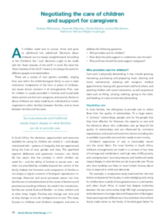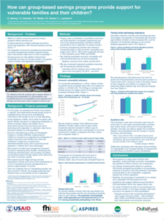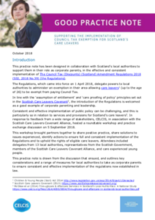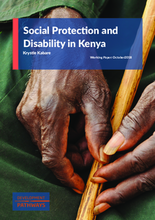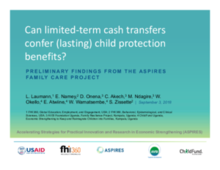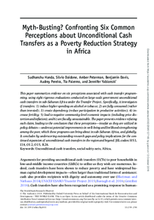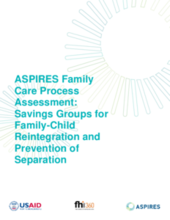Displaying 111 - 120 of 461
This chapter from the South African Child Gauge 2018 focuses on childcare and children’s caregivers in South Africa and aims to address the following questions: Who provides care for children? How does the state support or undermine care choices? Why and how should the state support caregivers?
This guidance report reviews the experience of and lessons learned from service provision in social welfare, child protection and childcare, health care, education and law enforcement. It presents methods, tools and service models that have proven effective in preventing and responding to corporal punishment.
This poster presents the findings of an assessment of two Family Care projects in Uganda that implemented savings groups as part of integrated family and economic strengthening interventions with families at-risk of a child separating.
This webinar reviews some of the new and ongoing work conducted under the Transfer Project, a multi-organizational research and learning initiative. The first presentation will summarize findings from recent reviews published on understanding linkages and impacts of cash transfers and social safety nets on intimate partner violence and violence against children in low- and middle income settings.
This practice note is drawn from the discussion and outlines key considerations and a range of measures for local authorities to take as Corporate Parents to ensure consistent and effective implementation of the regulations, now established in law.
This report provides insights into the current situation in Kenya regarding the inclusivity of social protection for people with disabilities.
This presentation highlights the preliminary findings from the ASPIRES Family Care Projects as regards the impacts of cash transfers on child protection benefits.
This study tests the effects of economic intervention—alone and in combination with a family-focused component—on parenting outcomes and children’s reports of violence in rural Burkina Faso.
This paper summarizes evidence on six perceptions associated with cash transfer programming, using eight rigorous evaluations conducted on large-scale government unconditional cash transfers in sub-Saharan Africa under the Transfer Project.
This evaluation examined the designs and implementation processes of the saving group components of ChildFund’s Economic Strengthening to Keep and Reintegrate Children in Family Care (ESFAM) and AVSI Foundation’s Family Resilience (FARE) projects in Uganda and identified practical lessons for implementers.

